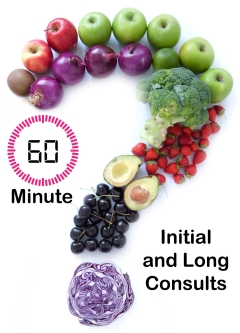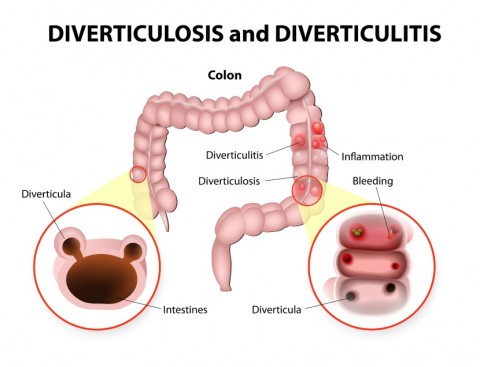DrCarney.com Blog
How High Fiber Diets Reduce Diverticulitis Risk
Each year, diverticulitis accounts for over 200,000 hospital admissions in the United States. Diverticulitis is a disease of the gastro-intestinal system in which diverticular pouches become infected or inflamed. The suffix "-itis" means inflamed, whereas the suffix "-osis" means "affected with".
Diverticulosis, the most common lower bowel disorder, is associated with advancing age, being more often found in the colon of those individuals older than 40 years (compared to younger people.) A lack of water and dietary fiber causes high pressures to be generated in the bowel, which creates bulging pockets (diverticula) that can bleed or fill with pus. Only plant foods contain the fiber that can prevent this disorder.
When these pouches which bulge from the colon wall become infected or inflamed, this resulting diverticulitis may obstruct bowel movements, bleed, or cause severe pain in the abdomen. Other symptoms of diverticulitis include constipation, diarrhea, bloating, fever, nausea, cramping, and rectal bleeding. In severe cases, patients may develop abscesses, fistulas, or perforations of the gut wall.
The human gut, especially the colon, houses thousands of different species of beneficial bacteria and other micro-organisms, such as fungi and protozoa. This gut microbiome performs many essential functions, including activation and strengthening of the immune system, and prevention of the growth of harmful micro-organisms. Dietary fiber is the choice food of these gut microbes. These microbes feast on fiber and produce short chain fatty acids. When these fatty acids are absorbed into the bloodstream, they enhance the immune system and fight inflammation. Regular intake of high-fiber diets of whole plant food helps to maintain a healthy, diverse population of gut microbes that directly inhibit the growth of harmful pathogens capable of infecting a diverticular pouch. Unprocessed plant foods reduce inflammation of the gut, thus reducing the likelihood of developing diverticulitis.
Data from several studies have shown that an increased intake of dietary fiber is associated with a decline in the risk of diverticulitis. The findings of a 2011 study published in the British Medical Journal revealed that the chances of being hospitalized for diverticulitis is 41% lower in individuals who consumed 25 grams or more of fiber per day than in persons who ate 14 grams of fiber per day. In another study, researchers found out that a 15% reduction in the risk of diverticulitis was associated with women who consumed an extra 5 grams of fiber per day.
In the words of Justin L Sonnenburg, PHD, an associate professor of Microbiology and Immunology at Stanford University School of Medicine, "if you are not eating dietary fiber, your immune system may be existing in kind of a simmering pro-inflammatory state." This is the state that makes us vulnerable to various 'Western' chronic diseases, including diverticulitis. Creating more space for dietary fiber on our plate may help to prevent or reverse this pro-inflammatory state, inhibit the growth of harmful microbes in the gut, and protect us from diverticulitis.
Additional Information:
(1) What is Diverticulosis and What Causes it?
(2) Diverticulitis and Happy Endings
(3) Diet rapidly and reproducibly alters the human gut microbe
Scroll Down Page to Leave Comments

Want to Make Lifestyle Changes?
Not sure how to start? The good news is that Help is Only a Click Away! We invite you to join Dr. Carney's Helpful Sharing Community.
One Hour Phone Consult with Dr. Carney

Telephone Food Coaching Sessions with Linda Carney MD
Due to demand for nutritional advice, Dr. Carney's offers Starch-Smart® System "Dietary Care Extraordinaire" Food Coaching telephone sessions. The first sessions is always one hour. Subsequent sessions can be thirty minutes or one hour:
Click Here For 60 Minute Food Coaching Session
Please Note: Food Coaching sessions are not medical appointments and are not intended to replace your own physician. No tests will be ordered and no prescriptions will be provided.
When you subscribe to the blog, we will send you an e-mail when there are new updates on the site so you wouldn't miss them.




